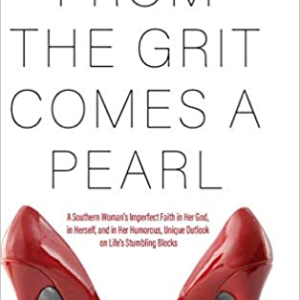New Rome: The Empire in the East (History of the Ancient World) Hardcover – February 8, 2022 by Paul Stephenson
HARDCOVER
[464 pages]
PUB: February 08, 2022
Description
Author: Stephenson Paul
Package Dimensions: 0x0x0
Number Of Pages: 464
Release Date: 08-02-2022
Details: Product Description
A comprehensive new history of the Eastern Roman Empire based on the science of the human past.As modern empires rise and fall, ancient Rome becomes ever more significant. We yearn for Rome’s power but fear Rome’s ruin―will we turn out like the Romans, we wonder, or can we escape their fate? That question has obsessed centuries of historians and leaders, who have explored diverse political, religious, and economic forces to explain Roman decline. Yet the decisive factor remains elusive.In New Rome, Paul Stephenson looks beyond traditional texts and well-known artifacts to offer a novel, scientifically-minded interpretation of antiquity’s end. It turns out that the descent of Rome is inscribed not only in parchments but also in ice cores and DNA. From these and other sources, we learn that pollution and pandemics influenced the fate of Constantinople and the Eastern Roman Empire. During its final five centuries, the empire in the east survived devastation by natural disasters, the degradation of the human environment, and pathogens previously unknown to the empire’s densely populated, unsanitary cities. Despite the Plague of Justinian, regular “barbarian” invasions, a war with Persia, and the rise of Islam, the empire endured as a political entity. However, Greco-Roman civilization, a world of interconnected cities that had shared a common material culture for a millennium, did not.Politics, war, and religious strife drove the transformation of Eastern Rome, but they do not tell the whole story. Braiding the political history of the empire together with its urban, material, environmental, and epidemiological history, New Rome offers the most comprehensive explanation to date of the Eastern Empire’s transformation into Byzantium.
Review
“The eastern Mediterranean witnessed major turbulence and transformation between the fifth and seventh centuries: climate change, wars, plague, religious strife, the end of classical antiquity, and the rise of Islam. In this striking new history, Stephenson gives us a portrait of Byzantium that is informed by environmental science and the material records left behind by the men and women of New Rome. Conventional histories of the last days of the Roman Empire will no longer suffice after you read this book.”
―
Averil Cameron, author of Byzantine Matters
“How did the Eastern Roman Empire of late antiquity become the civilization known as Byzantium? Stephenson’s
New Rome is the most compelling fusion yet of narrative history with the recent findings of environmental research and scientific data. It will change the way we understand key events and transformations in the Eastern Empire.”
―
Anthony Kaldellis, author of Romanland
“A genuinely new way of looking at later Late Antiquity, firmly anchoring the old stories of emperors and barbarians in their physical and environmental context. Stephenson’s gift for narrative is matched by an eye for arresting images and quirky anecdotes that will surprise and delight even jaded readers.”
―
Michael Kulikowski, author of The Tragedy of Empire
“Casts brilliant shafts of light on the material conditions and spiritual quests of the ruling and the ruled in the Mediterranean world of Late Antiquity. Long-studied monuments and texts are fused with Egyptian papyri and fresh scientific data on habitats and climate change to present a masterly synthesis.”
―
Jonathan Shepard, editor of The Cambridge History of the Byzantine Empire
“A sweeping survey of the disintegration of the western Roman empire and the emergence of Byzantium…Stephenson draws on the ‘new science of Roman history’ to reveal how climate change, pandemics, invading tribes, and near-constant warfare led to the decline of ancient cities…This impressive chronicle offers an eye-opening perspective on a period of dramatic change.”
―
Publishers Weekly
About the Author
Paul Stephenson is a historian of late antiquity and the author of
Constantine: Roman Em
Be the first to review “New Rome: The Empire in the East (History of the Ancient World) Hardcover – February 8, 2022 by Paul Stephenson”
You must be <a href="https://webdelico.com/my-account/">logged in</a> to post a review.



































There are no reviews yet.